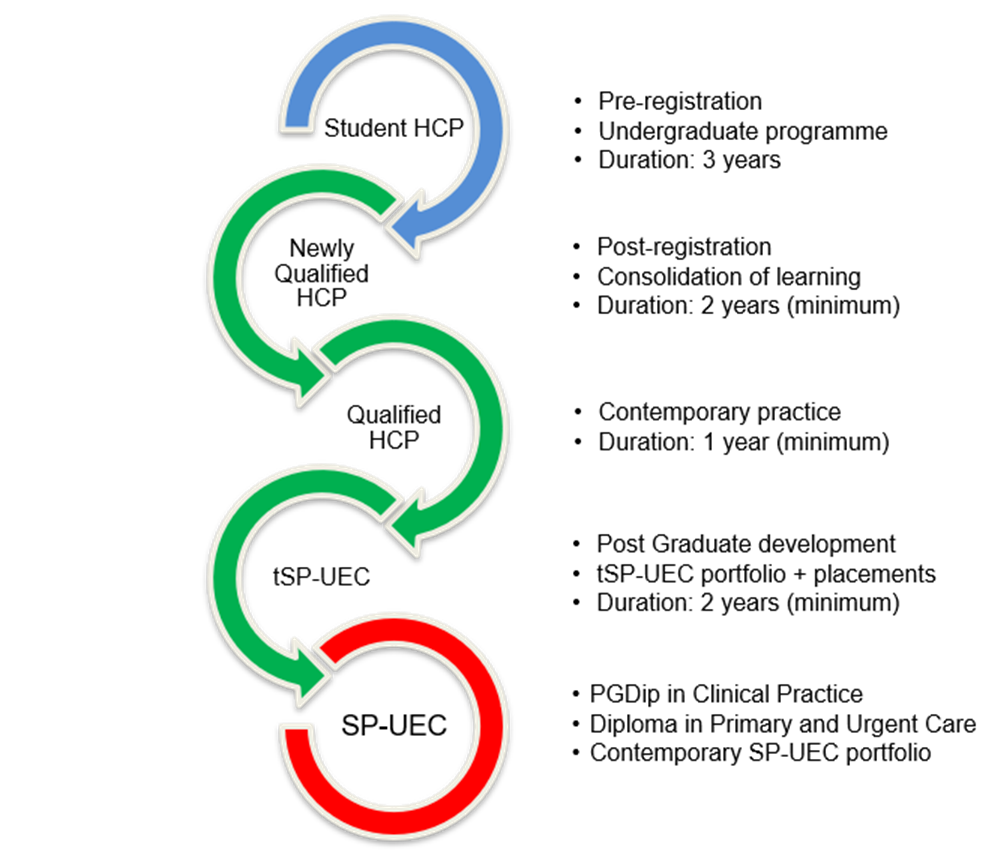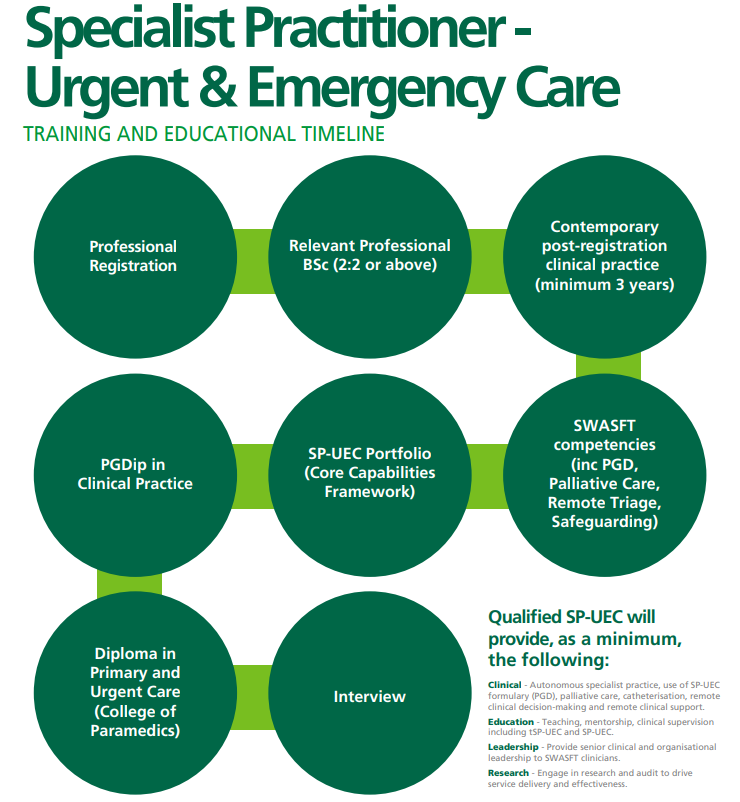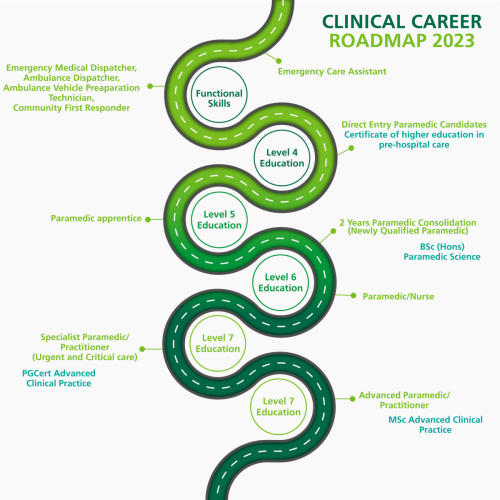Thinking of joining our Trust? We are proud of the dedicated, caring and enthusiastic staff that it employs that come together every day over a huge geographical area to provide a high quality and responsive service to our patients. South Western Ambulance service NHS Foundation Trust (SWASFT) employs Paramedics, Emergency Care Assistants (ECA) and 999 and 111 call-handlers but we also have many other areas of work, including highly skilled administrative staff and IT experts, as well as trained mechanics and housekeepers, all of which form part of the wider team responsible for delivering our emergency healthcare services to the public.

As the most clinically advanced Trust in the UK, our Paramedics treat more patients on-site without the need to attend an emergency department than any other UK ambulance service.
The new recruitment website has been created especially with you in mind, to keep you informed about our current vacancies, how to apply and further information about the South Western Ambulance Service NHS Foundation Trust, as well as an insight as to what it’s really like to work on our team.
Are you an experienced Paramedic? Looking to work where you are able to practise to the highest skill levels, with more autonomy than ever before?
We would love to hear from you and look forward to welcoming you to our team.
For existing staff who want to develop themselves and progress in their careers, there are numerous pathways and opportunities with SWASFT.
Below is a Clinical Career development road map. SWASFT Join Us
Aside from the stand alone CPD opportunities available on the main CPD pages, the Organisational Development team have a number of programmes and opportunities to help all staff move forward.
These programmes aren’t just for clinicians and registrants, but for all staff, no matter what role or department. If you are keen to advance, or just curious about what’s available, why not have a look at their page?
More information about career pathways here
EOC staff
Although it may feel a bit clinician heavy with CPD offerings, there are always courses suitable for all EOC staff.
Look out for leadership and softer skills courses; condition specific courses and resources, plus IT skills. The Organisational Development Team may also have some other options available.
If you haven’t found what you’re looking for, feel free to get in touch
SWASfT hosts student Paramedics from a range of partner organisations & also develops staff from within to upskill to Paramedic status & beyond.
We recognise the importance of high quality practice placements, high quality Practice Educators & a strong internal support for both of these groups. We have been working hard over the last few years to build a structured support network of dedicated staff, information, & educations opportunities for students & their Practice Educators.
Hazardous Area Response (HART) Paramedic
There is no doubt that joining a HART team takes a lot of preparation and training. However it also calls for a range of personal attributes that will enable the team member to operate effectively within this environment.
Some characteristics of HART personnel:
- Work well with others in a team
- Can communicate quickly and freely with others on scene
- Have good physical fitness and stamina
- Can think quickly and are ready to make difficult judgment calls
- Can see themselves undertaking clinical intervention in potentially difficult or extreme situations
- Are flexible and can readily adapt to changing circumstances
- Can remain calm under pressure
- Are mentally and physically resilient.
Specialist Practitioner – Urgent & Emergency Care (SP-UEC)
Overview
The specified requirements for the SP-UEC role reflects the needs of the local population and supports a standardised approach to the qualification status of SP-UEC; promoting clinical agility and competence at the core of the Trust’s specialist workforce. All four pillars of advanced practice will feature within the career development of a practitioner progressing on the clinical practice pathway. However, their development will inevitably focus on relevant activities in clinical practice in order to comprehensively demonstrate knowledge, capability and expertise in their chosen speciality. This will include, but not exhaustively:
- Assessment, diagnosis, referral and discharge
- Clinical Governance
- Ethical decision-making
- Managing complexity/critical decision-making
- Professional values and behaviours
- Risk management
How does this fit into my career plan?

Education

Trainee Specialist Practitioners – Urgent and Emergency Care are required to achieve a number of milestones in their educational pathway. Although a PGDip in clinical practice is a key component, crucially this must be facilitated alongside clinical placements to enable contextualisation of theory into practice, which is an essential component of the academic process. Supplementing this academic route, the tSP-UEC are facilitated by the advanced practice faculty over a minimum period of 2 years to gradually expand their scope of practice from respective HCP backgrounds, to the level of qualified SP-UEC. This formative period will encompass areas of practice including:
- Clinical Examination and Procedural Skills (CEPS)
- Consultation Observation Tool (COT)
- Direct Observation of Procedures Skills (DOPS)
- Extended Supervised Learning Events (ELSE)
- Human factors
- Multi-Sourced Feedback (MSF)
- Palliative and End-of-Life care
- Patient Group Directions (PGD) associated with specialism
- Remote consultation
- Significant Learning Events (SLE)
- Workplace Based Assessments (WPBA)
- Wound closure techniques
Qualification
The College of Paramedics’ Diploma in Primary and Urgent Care (DipPUC) is the summative assessment that is a multi-professional examination designed to test the knowledge, skills and attitudes of experienced specialist clinicians. The DipPUC focuses on effective communication, recognition, diagnosis, management and appropriate referral of an array of aliments and medical conditions, which incorporates a wide range spectrum with a goal to achieve an effective and successful patient consultation. The DipPUC utilises a triangulated assessment methodology, providing a comprehensive and academically robust evaluation of practice through:
- Workplace Based Assessments (WPBA)
- 15 x 10 minute Objective Structured Clinical Examinations (OSCE), based on the range of potential patient encounters in primary and urgent care
- A three hour Applied Knowledge Test (AKT) paper, formed of 150 single best answer (SBA) questions, designed to test underpinning knowledge and clinical reasoning.
The College of Paramedics website is a great place to find out about the national standards and progression for this role.
Specialist Paramedic – Critical Care
Selection
In order to begin the process of becoming a SWASfT SP-CC it is necessary to secure a training post by passing the SWASfT SP-CC selection process. This includes:
- Application
- Assessment Day
- Interview
- Application
As with all SWASfT jobs, the position will be advertised in the Trust Vacancy Bulletin and on NHS Jobs. Here both the personal specification and job description will be found. A streaming process is then used to identify suitable candidates and invites made to a selection day.
HEMS Training
All trainee and qualified SP-CCs currently work on Helicopter Emergency Medical Service (HEMS) Enhanced or Critical Care Teams.
All trainee SP-CCs train as Technical Crew Members via an EASA (European Aviation Safety Agency). This qualifies the SP-CC to work on helicopters and assist the pilot in navigation and aeronautical safety as well as utilising helicopters to assist in the delivery of medical aid to patients.
The EASA Technical Crew Member Course is a one week, pass/fail aviation programme.
Core Skills Training
There are several core skills that an SP-CC must be signed off in before they qualify. These include:
- Autonomous Surgical Skills (including surgical Airway, thoracostomy)
- Supportive Surgical Skills (e.g. Resuscitative Hysterotomy, thoracotomy)
- Procedural skills (e.g. sedation and manipulations)
- Additional Pharmacological capabilities
For many of these skills the trainee will be required to pass competency assessments. For the additional drugs, additional PGDs will need to be taught and learnt. In some circumstances, such as administering ketamine for sedation, a thorough portfolio will need to be submitted evidencing the exposure and capabilities of providing the treatment. It will be a requirement that all existing PGDs will need to be signed off before the clinician can be regarded as fully qualified.
As each of the different skills packages and PGDs are completed, the clinician must update their training records, via the unit Educational Lead and/or Operations Officer who will then inform the Air Operations Training Manager. The Air Operations Training Manager can then update the individuals Enhanced Skills status with the Enhanced Skills Register within SWASFT.
Educational Accreditation
In accordance with the College of Paramedics Career Framework, SP-CC will have to have completed a formal Post Graduate Certificate in Critical Care before they can become qualified. The PG Cert must be from a SWASfT recognised and approved provider.
If a candidate has a similar qualification from a different provider then it may well be deemed acceptable if approved by the Air Operations Management Team.
Much more information can be found on the SWAST intranet page. *At present this process in being updated so the intranet page is not available. We will post new links as soon as it is updated.
If you are an external candidate thinking of moving to SWAST, and you would like a copy of the information on the intranet page, please contact us directly at cpd.admin@swast.nhs.uk and we will be happy to provide it. *At present this process in being updated so the intranet page is not available. We will post new links as soon as it is updated. Please look out for SPCC trainee jobs on NHSJobs.
Below are links to Air Operation Charity websites.
Feel free to contact them about volunteering or fundraising, they are always happy to accept donations or help!
Fundraising and volunteering is a great way to learn more about the role.
Clinical Roles
The charity websites may have information about clinical opportunities, but please bear in mind that they may use different clinical models in different areas, and have different recruitment criteria and routes of entry. Please make sure you read all the information before contacting them directly.
If you are a student or paramedic aspiring to work on a HEMS unit, it can be a very competitive and long path. But it doesn’t mean you can’t get there!
Front line experience, experience in other advanced roles such a SPUEC, HART, Primary Care, Masters level academic achievement in leadership and clinical modules are all a good place to start building your CV so you can be ready when an opportunity presents itself.
Advanced Practice is delivered by experienced, registered health and care practitioners. It is a level of practice characterised by a high degree of autonomy and complex decision making. This is underpinned by a master’s level award or equivalent that encompasses the four pillars of clinical practice, leadership and management, education and research, with demonstration of core capabilities and area specific clinical competence.
Advanced Practice embodies the ability to manage clinical care in partnership with individuals, families and carers. It includes the analysis and synthesis of complex problems across a range of settings, enabling innovative solutions to enhance people’s experience and improve outcomes.
Advanced Practice is a level of practice, rather than a specific job role or title.



